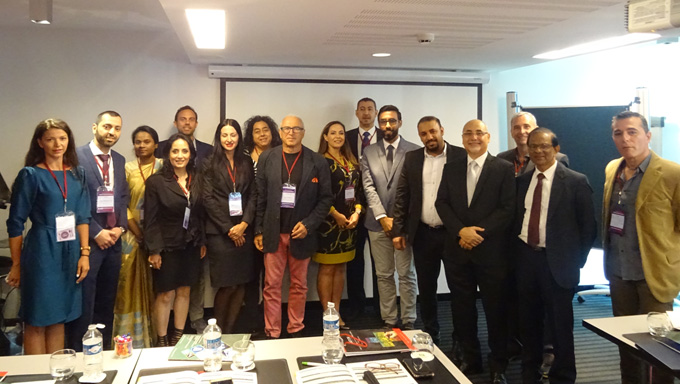







Mental health refers to cognitive, behavioral, emotional and social well-being. It is all about how people think, feel, and behave. It also helps to determine how we handle stress and make choices. Mental health can affect daily living, relationships and physical health. Mental health problems are common but help is available. People with mental health problems can get better and many recover completely. The components of Mental Health are In-person therapy, community, physical health, Intellectual health, environmental health, boundaries and self-care.
Schizophrenia is a chronic brain disorder in which people interpret reality abnormally. Schizophrenia may result in some combination of hallucinations, delusions, disorganized speech and trouble with thinking, lack of motivation and behavior that impairs daily functioning. However, with treatment, most symptoms of schizophrenia will greatly improve.
Depression is a mood disorder that involves your body, mood and thoughts. It affects the way you eat, sleep, think about things and feel about yourself. Dysthymia is a milder, but long-lasting form of depression. It’s also called persistent depressive disorder. People with this condition may also have bouts of major depression at times. Treatment is key to recovery. Anxiety is a common emotion when dealing with daily stresses and problems. But when these emotions are persistent, excessive and irrational, and affect a person’s ability to function, anxiety becomes a disorder. Anxiety disorders form a category of mental health diagnoses that lead to excessive nervousness, fear, apprehension, worry, uneasiness, phobias. Cognitive behavioural therapy (CBT) is a proven and effective method in helping people with anxiety and depression.
Bipolar disorder, formerly called manic depression, is a mental health condition that causes extreme mood swings that include emotional highs (mania or hypomania) and lows (depression). Although bipolar disorder is a lifelong condition, you can manage your mood swings and other symptoms by following a treatment plan. In most cases, bipolar disorder is treated with medications and psychological counseling (psychotherapy).
Trauma and stressor-related disorders are a group of emotional and behavioral problems that may result from childhood traumatic and stressful experiences. These traumatic and stressful experiences can include exposure to physical or emotional violence or pain, including abuse, neglect or family conflict. Trauma and stressor-related disorders include Post-traumatic stress disorder (PTSD), Acute stress disorder (ASD), Reactive attachment disorder (RAD), Adjustment disorders, Disinhibited social engagement disorder (DSED).
Neurodevelopmental disorders are disabilities associated primarily with the functioning of the neurological system and brain that usually begin in infancy or childhood. Examples of neurodevelopmental disorders in children include attention-deficit/hyperactivity disorder (ADHD), autism, learning disabilities, intellectual disability (also known as mental retardation), conduct disorders, cerebral palsy, and impairments in vision and hearing.
Addiction is an inability to stop using a substance or engaging in a behavior even though it is causing psychological and physical harm. Examples of drug and behavioral addictions include alcoholism, marijuana addiction, amphetamine addiction, cocaine addiction, nicotine addiction, opioid addiction, food addiction, chocolate addiction, video game addiction, and gambling addiction.
We let our ground-breaking work and our amazing clients speak for us…… LONGDOM conferences